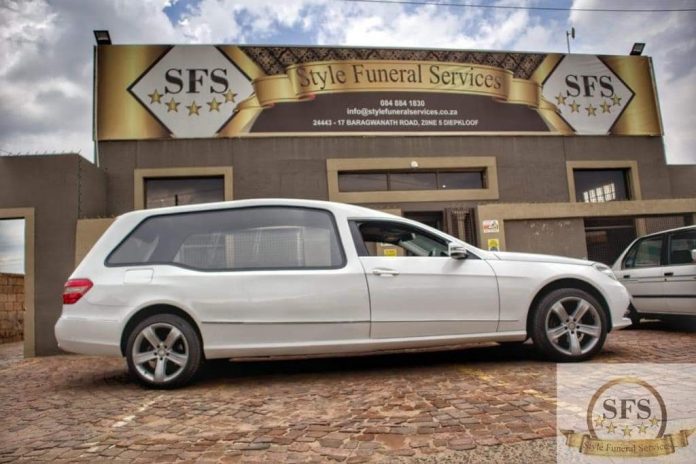Loadshedding continues to cripple the country’s funeral parlour industry, according to Dududu Maganu, spokesperson for National Funeral Practitioners Association of SA.
“If there is no solution for loadshedding by the end of this year, another 100 undertakers will close, and when they do, that means unemployment,” said Maganu.
“[Loadshedding has put a] strain on our services and we lose business. Generators are not sustainable, we cannot run a business for 24 months on a generator.
“I know that a lot of mortuaries will not get to December if there is no immediate change to power cuts crisis.”
He said the industry’s biggest challenge is keeping the fridges running.
“Bodies of people who had wounds, high-blood pressure and sugar diabetes are more sensitive, because they bleed [and that] leads to decomposition.
“As the funeral parlours, we have no choice but to ask the family [of the deceased] to bury their loved one soonest to avoid it [decomposition]. We continue to lose clients daily.”
Maganu said the cost of funeral parlours’ operations have spiraled because they rely on back-up measures to render services for 12 hours every day.
“We have exhausted funds and as a result we will have to reduce staff, which means our services will be poor and the clients will look elsewhere for business.”
Unathi Saul, chief operations officer at Abaveleli Funeral Directors in Eastern Cape, said the company has lost clients due to it struggling to receive or process EFT payments when loadshedding hits.
“Even though I cannot put a figure on it, but the company has spent a lot of money towards fuel generators and maintaining compressors in the cold rooms,” said Saul.
“We sometimes replace the compressors and that sets us back because there is no budget for them.
“We have had cases where bodies get decomposed because generators are not as strong as the electricity.
“In such cases, we inform the family immediately and often they are understanding, as they experience loadshedding too. We then apply embalming method.”
Icebolethu Group CEO Nomfundo Mcoyi highlighted the depth of power outages for the company, as they work jointly with government departments and banks.
“The process of keeping bodies relies on different stakeholders including hospitals, our underwriters, government mortuaries and Home Affairs. We’re also impacted by the process,” Mcoyi shared.
“The regular on and off is dangerous to the infrastructure, which most equipment is not designed to handle, especially when it happens two to three times a day.”
Mcoyi said the company’s equipment is mostly at risk to malfunction during this time, like all other electrical equipment.
She added that the company is monitoring impacts of loadshedding, and constantly engages its stakeholders and clients to find solutions.
“With the rising cost of fuel, we are conducting feasibility studies of using renewable energy to provide back-up power at our mortuaries.
“We are also looking at solar systems and other alternate energy resources that can suite our operations.”
Morena Tlhagane, managing director at Style Funeral Services in Soweto, said the sector is financially burdened by power outages because the fuel to power generators is expensive.
“The administration system, computers and telephones are constantly down. That has an impact on how our business operates because clients can’t get through to our offices.
“We plead with government to intervene and speed up the process of finding a permanent solution to the problem at hand,” Tlhagane said.
Follow @SundayWorldZA on Twitter and @sundayworldza on Instagram, or like our Facebook Page, Sunday World, by clicking here for the latest breaking news in South Africa. To Subscribe to Sunday World, click here



